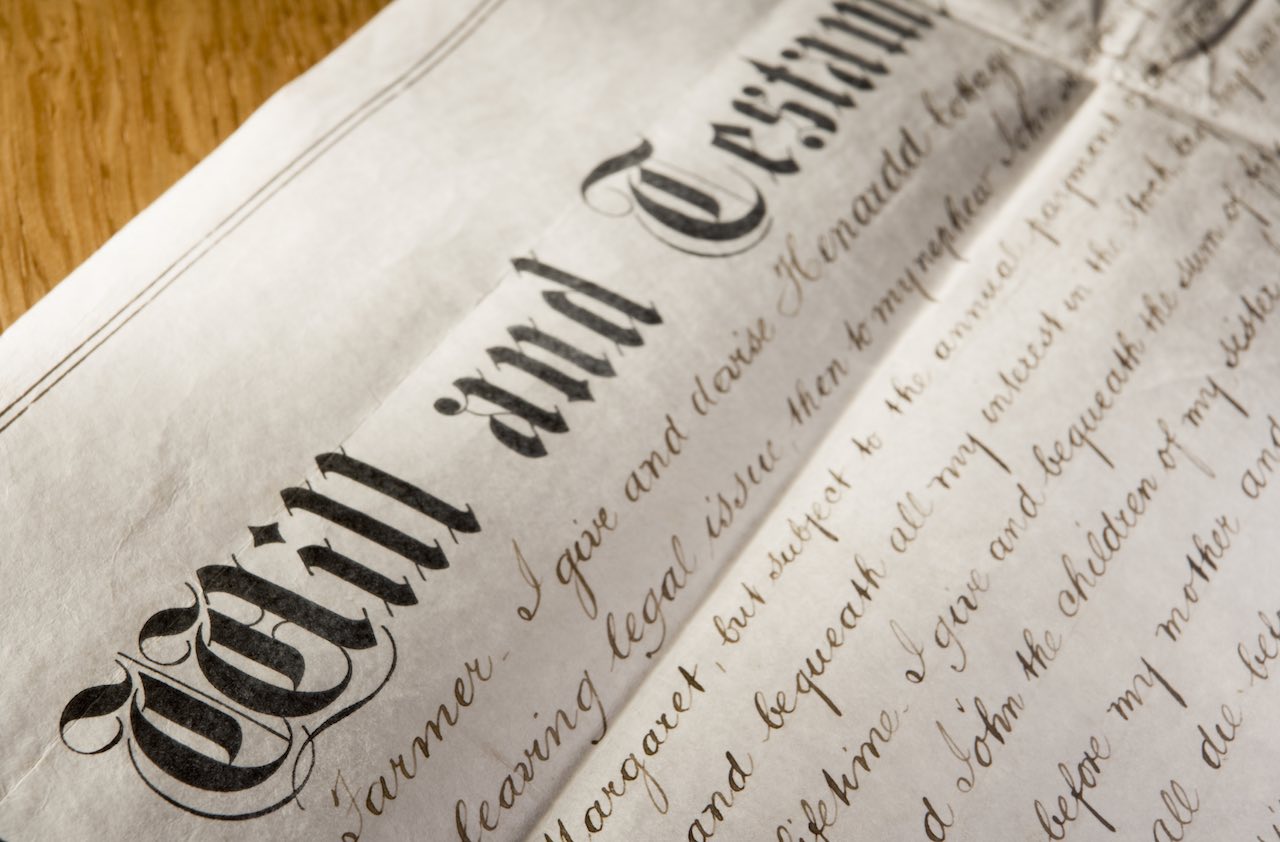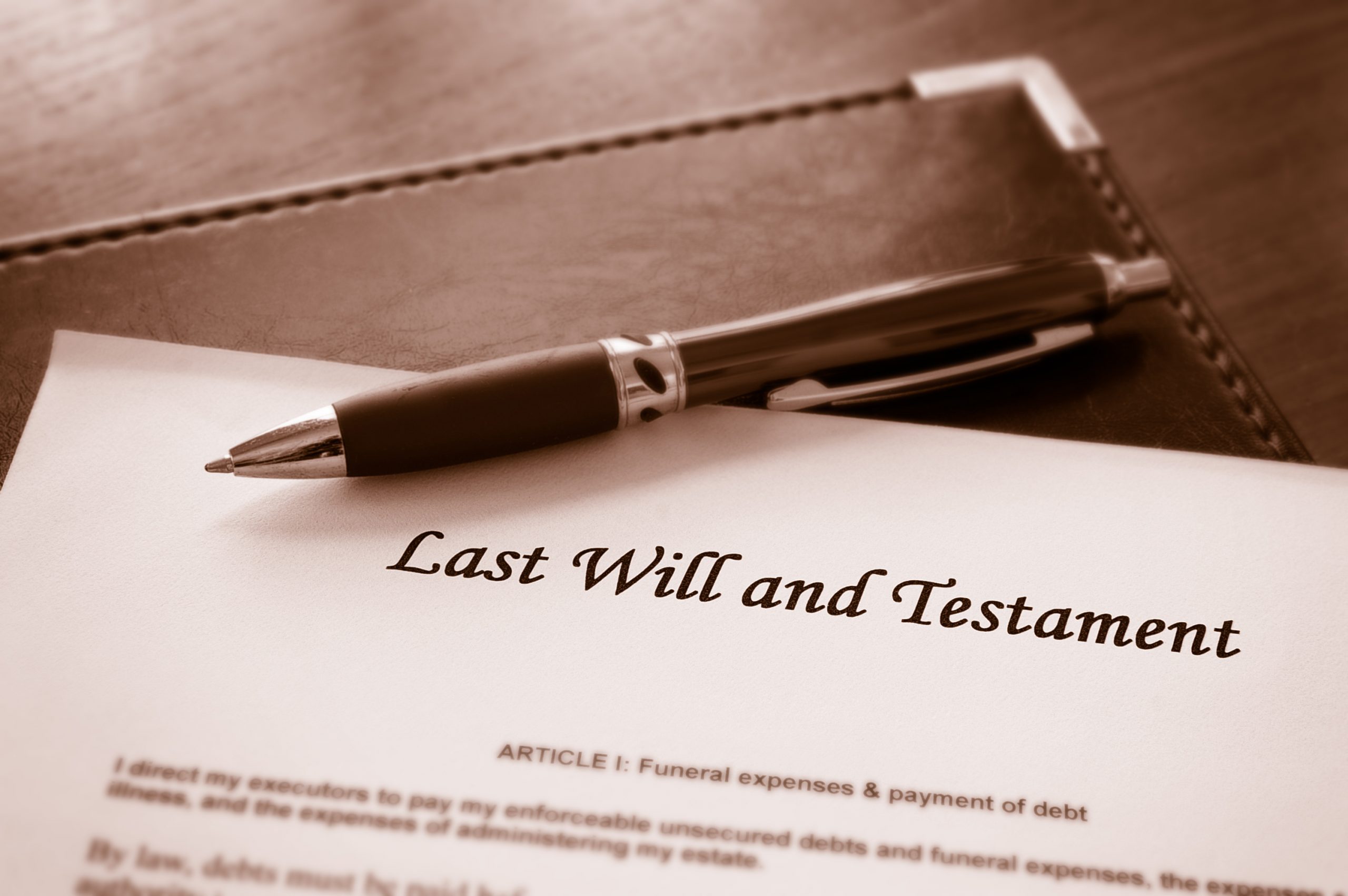A Guide to Writing Your Will
Summary
Step 1: Who can write a will?
Step 2: Choose a type of will
Step 3: Prepare to write your will
Step 4: Write your will
Step 5: Keep the Will
Making a will is an option for everyone. A will can be made to make provisions for a stranger, make special bequests, or change an estate’s devolution (giving one heir more than others).
A will can only be made in writing and can only contain the provisions of one person; a will made by a couple is void.
The will only take effect at the testator’s death and can therefore be changed or revoked until that date.
To draw up a will, it is first necessary to choose the proper will, to draw it up per the legislation and finally to take specific measures to preserve it. We’ll tell you everything!
1. Who can write a will?
To write a will, you must be “capable” (as defined by Australian law), i.e. be of age or emancipated. However, under certain conditions, persons placed under protective supervision may write their will:
An adult under curatorship may freely draw up his or her will. However, there is a risk that the will can be annulled upon death if it is proved that the person under curatorship was not of sound mind when he made his will.
A person of full age under guardianship cannot make a will on his own; he must be authorized by the guardianship judge or the family council. Otherwise, the arrangements made will be null and void.
A minor over 16 may make a will, but it may only concern half of the property the law allows the adult to dispose of.
If the will is made before a notary, you must provide a birth and marriage certificate or family record book to prove your civil status and capacity.
2. Choose a type of will
There are 4 types of wills.
Please note that a joint will is prohibited (a single will made by several people). Each testator must therefore draw up a will; otherwise, it will be invalid.
Holographic will
The holographic will is the most common form. You must respect certain form conditions for it to be valid at your death.
Your will must be:
written in your handwriting (no computer-generated wills);
dated (day, month and year) either at the beginning or the end of your text signed.
Good to know: a will written in English by someone who does not understand the English language is invalid.
Authentic Will
An authentic will is made before two notaries or by a notary in the presence of witnesses. Witnesses must not be the legatees named in the will, their relatives or relatives up to and including the fourth degree, or the notary’s clerks.
To be a witness, one must be an Australian citizen, of full age or an emancipated minor, have the enjoyment of one’s civil rights and be able to sign. Two spouses cannot be witnesses for the same will.
You will be obliged to opt for this form if you cannot write your will yourself (due to a disability, illiteracy, etc.). In this case:
You will dictate your last wishes to the notary (impossible for a mute person).
It must be written in English, and an interpreter cannot be used for foreigners who do not speak English.
The notary will read the will, and then it will be signed by the testator, the notary(ies) or the witnesses.
Good to know: the “authentic” nature of this will gives it an almost unassailable value due to the “probative force” attached to it. The risks of contesting the provisions in an authentic will are minimal because the notary declares that the person is sound of body and mind at the time of writing.
Mystic will
The sealed will is a will written by the testator (i.e. holographic), but the way it is kept differs: it is handed over by the testator in the presence of two witnesses to a notary, who draws up a deed.
The conditions required to be a witness are the same as for the authentic will.
The will must be delivered, closed and sealed to the notary. The will is not read.
The civil law notary draws up a deed recording the deposit of a will by Mr X on such and such a day and at such and such a time. This document is signed by the testator, the witnesses and the notary.
It consists of depositing the will before witnesses at a notary’s office, but without the notary’s duty to advise in its drafting.
International will
The international will has two major differences from the holographic will:
It can be written in a foreign language.
It can be written by a person other than the testator.
It must be drawn up in the presence of two witnesses (same conditions as for the authentic and mystical will) and an authorized person (notaries in Australia, Australian diplomatic and consular agents abroad).
3. Prepare the writing of your will
Before you start writing a Will, there are some questions you should ask yourself…
What kind of legacy should I make?
If you wish to give to one or more persons the entirety of the property you will leave upon your death: this is a universal bequest, which may be reduced in the presence of heirs entitled to a legal reserve (children).
If you wish to give a share of the property that the law allows you to dispose of (half, a third) or all your real estate, or all your furniture or a share of your real estate or furniture: this is a universal bequest.
If you wish to give a specific object to one particular person: this is a specific bequest.
Good to know: you can draw up your will, including a universal and specific bequest.
When I die, who are my heirs?
If you have children, you cannot disinherit one of them. A share will be reserved for him/her: the legal reserve. You can only dispose of the “available portion”, which is half in the presence of one child, one-third in the presence of two children and one quarter in the presence of three or more children.
However, you can provide for a portion of your estate (the “available portion”) to go to one of your children in addition to his or her share of the estate.
If you have no direct heir (child), you can leave your property to a person of your choice, but that person will pay 60% estate tax. You can also bequeath your property to associations that are declared to be of public utility and can receive legacies (excluding inheritance tax).
If you are not married and have no children but have signed a civil solidarity pact, you can bequeath all your rights in the house that constitutes your home (for example, half of the property if you each bought half of it undivided) to your partner. In this case, the survivor will become the owner of the half that is transferred without any inheritance tax.
Good to know: the two partners cannot add a simple document providing that in case of death of one or the other partner, the survivor would receive by legacy all or part of their property. This would be a joint will, which is prohibited. The collection of the last wishes of the civil union partners must be done in a unilateral act such as a will.
4. Write your will

You may begin by stating, “this is my will”, but this is not required for it to be valid.
If your will has several pages, it is best to number them and initial the first page. Don’t forget to date your will at the end or the beginning.
If you wish to make specific bequests of movable items, remember to describe them sufficiently so there can be no confusion with any other property.
Always use simple language to designate the beneficiary of the legacy:
“I bequeath to Mr… residing at…, all of my movable and immovable property that will exist on the day of my death.”
“I bequeath to Mr… residing at… my bedroom in my house located at…”.
If you wish to make a bequest to an association, remember to check whether it is authorized to receive bequests (by phoning them first).
Please note: if you have already made a will before, you must write the following words in the will: “I revoke all previous dispositions”.
5. Keep the will
It must be kept with your notary if you have made an authentic or sealed will.
If you have drawn up a holographic will, there are three possible choices for keeping it:
Keep your will at home, but the risks of loss or destruction are high.
Put it in a safe deposit box in a bank. In this case, it is important to indicate it to one of your heirs so that he can make it known at your death.
Deposit it with a notary so that he or she can register it in the testament file upon your death. Any notary will be able to find out about the existence of your will, as the file is systematically consulted by all notaries when an estate is opened.
Attention: if part of your will concerns how your funeral is to be held, remember to inform your family: an authentic or holographic will is most often opened several weeks after the death.

